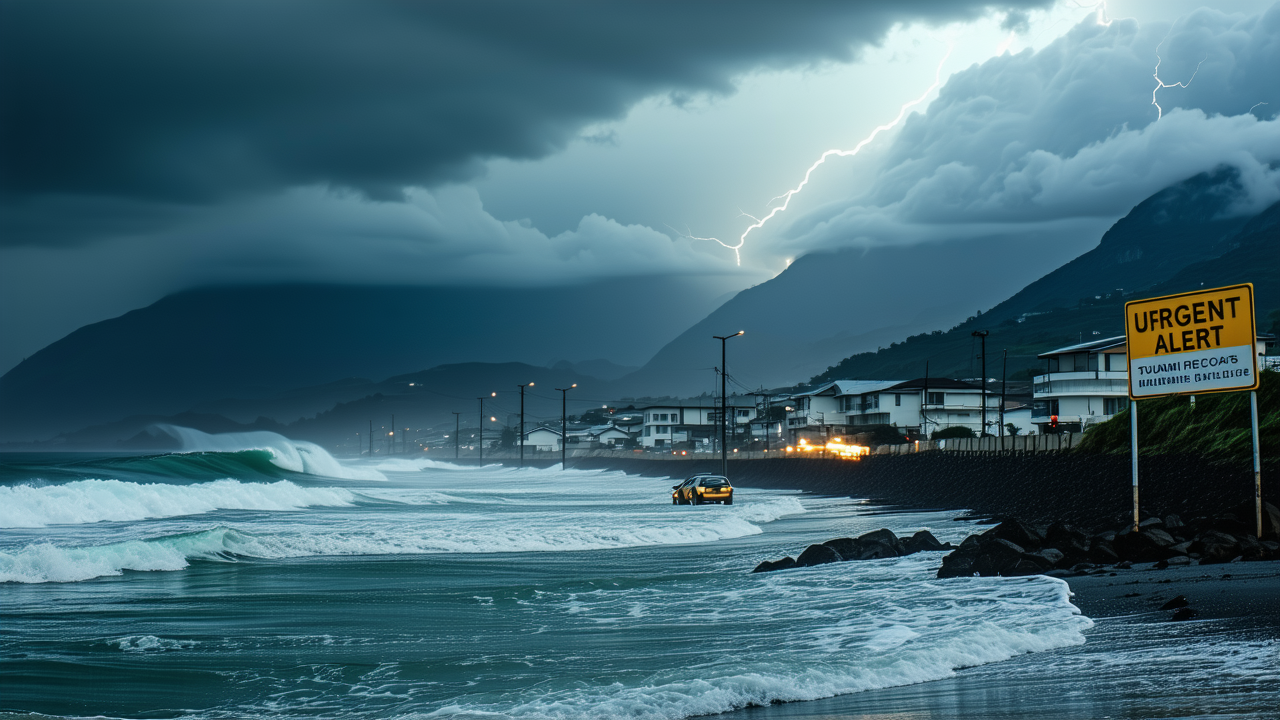Russia Earthquake Sparks Tsunami Warnings for New Zealand: Civil Defence Issues Urgent Sea Surge Alerts
Russia Earthquake Sparks Tsunami Warnings for New Zealand: Civil Defence Issues Urgent Sea Surge Alerts
New Zealanders have been placed on high alert following a massive 8.8-magnitude earthquake off the coast of Kamchatka, Russia, which has triggered tsunami activity across the Pacific. The National Emergency Management Agency (Nema) has issued a national advisory warning residents along New Zealand’s coasts to be vigilant for strong and unusual currents, as well as unpredictable surges, expected to arrive from midnight tonight and continue into the following day.
Tsunami Warnings and Evacuation Orders Across the Pacific
Japan has already issued evacuation orders for hundreds of kilometers of its coastline, while Hawaii has urged its residents to take “urgent action to protect lives and property” in coastal areas. New Zealand, while not directly in the path of the initial quake, is now facing the potential consequences of the resulting tsunami waves.
What Kiwis Need to Know: Safety Tips and Precautions
Nema has issued clear guidelines for residents along New Zealand’s coastal areas. People in or near the sea should move out of the water, off beaches, and away from harbors, marinas, rivers, and estuaries. Strong currents and surges can be life-threatening to swimmers, surfers, fishermen, and anyone near the shore.
Those on boats, live-aboards, or at marinas are advised to leave their vessels and move to safer ground. It is crucial not to return to boats unless instructed by official authorities. Nema has also provided provisional arrival times for tsunami waves across various parts of New Zealand, with the earliest expected to reach the East Cape at 11:59 PM (July 30) and the latest arriving in Nelson at 4:21 AM.
Why New Zealand Has Time to Prepare
Dr. Jennifer Eccles, a senior lecturer at the University of Auckland’s School of Environment, emphasized that New Zealand’s distance from the epicenter is a key factor in the country’s ability to prepare. She explained that tsunami waves travel relatively slowly through deep oceans, giving residents time to take necessary precautions. “By the time the waves reach us, the energy will have dissipated somewhat, making the impact less severe than what might be observed closer to the source,” she said.
What to Do If You Receive a Tsunami Alert
Residents should stay informed by monitoring official alerts from Nema and local Civil Defence authorities. If a tsunami warning is issued, it is essential to move to higher ground immediately and avoid any areas near the coast. Emergency services are prepared to assist those in need, but it is ultimately the responsibility of individuals to act swiftly and safely.
Stay Informed and Stay Safe
For more information, residents can visit the official Nema website or follow updates on social media. The Civil Defence has also emphasized that while the situation is serious, the time lag and distance from the earthquake epicenter provide a critical window for preparation and response.
This article is based on information from various sources and is not affiliated with any specific news organization.
